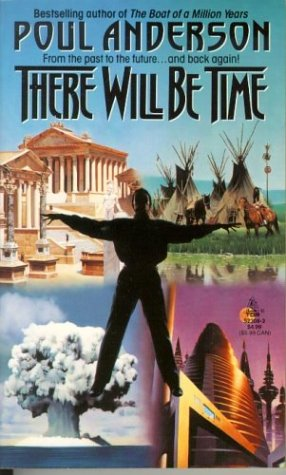"I pressed the lever over to its extreme position. The night came like the turning out of a lamp, and in another moment came tomorrow."
-HG Wells, The Time Machine (London, 1973), 4, p. 24.
That arrival in "tomorrow" is the real beginning of the Time Traveller's journey into the far future and also the beginning of much else:
Wells' speculations about the future of mankind;
science fictional time travel in vehicles called "time machines";
the time travel paradoxes that Wells merely hints at;
Poul Anderson's several time travel works, particularly There Will Be Time.
There Will Be Time is significant because:
the mutant time travellers' experience of time travel exactly reproduces that of the original Time Traveller - events speeding past while the travellers themselves become unaccountably both invisible and impalpable;
Anderson acknowledges Wells by having one of his characters give the time travel idea to a young English writer...
Suddenly, the history of science fiction is turned inside out.

1 comment:
Kaor, Paul!
I remember how Caleb Wallis gave that young writer the idea of time traveling! It makes me wonder if other time travelers did the same thing.
Ad astra! Sean
Post a Comment